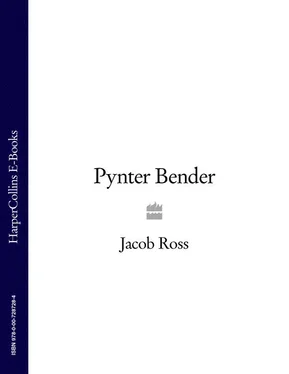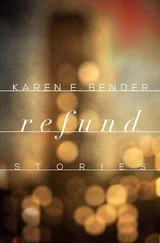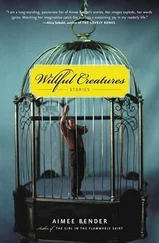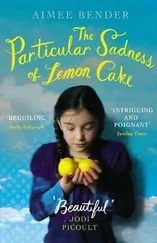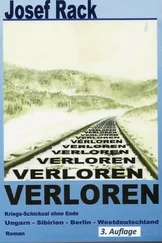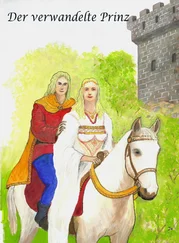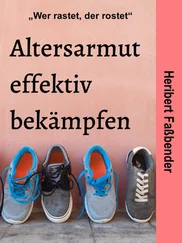It amazed him that even when he’d listened, he’d never heard what Deeka was really saying when she loosened her hair and talked; that beneath her words there lived another story – one that sat at the back of almost everything the adults said, especially when they spoke of those who had come before them and those who would come after.
This new thing that his father’s last words taught him: that in the villages above the canes people did not die. As long as memory lived they did not. They passed. Leaving always something of themselves behind. John Seegal, their grandfather, had passed most of himself over to Birdie, except for the thieving ways, o’ course, which came from a great-grand-uncle whose name Deeka refused to say. And the long-gone aunts, the grandmothers, the uncles were there with them right now. They were scattered among the children the way the leaves of a forest tree became the flesh of other plants around it. They were there in the curve of a young man’s spine, the turn of a girl-child’s head, the way their lips shifted from their teeth in a grimace or a smile. There too in the shape of a baby’s feet or the quickness of its temper. There even in the flavours they preferred, and the things their bodies asked for.
For wasn’t it true that Columbus, John Seegal’s only brother, had passed on his singing voice to all the Benders that came after? And where did that shine-eye beauty of Patty come from, if not from the very best parts of all those cane-tall Bender women who knew how to unravel dreams and turn their hands to medicines; and who, sometimes just for the sake of it, created new and marvellous things from rope and thread and fabric? And what about those children born with a wisdom older than their age? Did that come from nowhere, eh?
It explained, at least, the querying hands of those adults who, like his father, mapped the bones of children and sought to read their futures and their past there. And it explained why the idea that his body was a house to a man who had lived long before his time made perfect sense to Deeka Bender, his grandmother.
Her problem was the way he had come. Not a little while after Peter. Not even later in the evening. But two days after his brother. She who had brought him out still talked of the way he’d fought her. For all of two bright dry-season days when, with the whole world living life outside, night hadn’t left that birth room. And that cry, when he’d finally released his death hold on her daughter – that cry wasn’t the cry of a child at all, but the raging of a young man. And then, of course, they saw the eyes, or what hid the world from them.
It was not so, Tan Cee told him. Not as Deeka said it. She did not remember it that way. In their first few years, Deeka didn’t remember it that way either. But remembering was like that. Remembering was like life, like people: it got better or worse with time. There were women like Deeka, she said, who tied their lives to a man’s so tight they forget they ever owned one. And when that man got up and walked, it was not just his life he took, he went with theirs as well.
‘So what left for them to do after?’ She smiled dreamily at him. ‘They look for something they kin blame. And you – you the one your granny pick.’
He’d asked her what John Seegal looked like, because even if they’d said he looked like Birdie, he could not make an image in his mind. Just a shape – a scattered force that inhabited his grandmother and the children he had left with her. He used to imagine him within the stones he’d used to build the yard, especially the large flat rock beside the steps which they said he used to sit on.
He wasn’t sure that Tan Cee heard his question. Her eyes were on her husband, off again, he’d told her, to start work on a house somewhere in the south. He would be away a coupla days.
She took her eyes off Coxy, adjusted her skirt and sighed. ‘Some things have to …’ She stopped short, considered what she was about to say and smiled quietly at him.
‘Your granny always talk ’bout how she meet John Seegal. She never talk ’bout how he left. She never say much ’bout Anita either. Y’ever wonder why?’
She told him of a morning her mother was sweeping the yard when a child arrived and called her by her real name. He stood at the edge of the yard, his stomach exposed, his thin legs crossing and uncrossing, his hands small and thin like a bird’s, moving around his face as if he were washing it with air.
Deeka asked him what he wanted. He told her that he wanted nothing. She asked him why he came then. He said his father sent him with some news. She told him that men never sent their children anywhere with news. And a woman wouldn’t have sent him because she would bring the news herself. And so she turned her back on him.
But he was still there at the corner of her eye. Still washing his face with his hands. And then, when she was least expecting it, his voice came across the yard as clear as if he was standing right next to her.
He told her that her husband Big John Seegal had wagered her, his house and his three girl-children that he was going to cross the Kalivini swamps in the early hours of the morning and emerge from it alive.
Deeka smiled at the joke at first, found herself remembering it throughout the rest of the day and laughing. But by late evening, when she heard her husband’s footsteps coming up the path, the words of that boy seemed somehow less ridiculous.
He came home full of his own thunder. Sat on the steps stinking of the rum he’d despised all his life. Sat there working up a murderous argument with himself. He raised his hand at Deeka and told her for the first time what he really thought of her and the four children she had given him. And at the end of it he stretched himself out in the yard and would not look at them.
Deeka gathered the children around her and told them what their father was about to do. Down there, she told them, way past cane, there is a place where the Old Hope River meets the sea. The river does not die there; it becomes something else: a stinking, bubbling tangle of mangrove where the sharks swim in on the early-morning tides to feed on all the things the land rejected. She told them that their father, overtaken by some demon for which there was no accounting, had decided to cross that place in the small hours of the morning.
Deeka fought all night to keep him: I ever give you cause to feel you not a man? That you less than another woman man? What about the children? Eh? What about them? They not healthy? They not yours? You want somebody to tell you sorry for something they didn do to you? Okay then, I sorry. If me, the children or anybody do anything to push you to where you is, to make you come like you come home tonight, I want to tell you sorry.
She turned to the girls with a deadly, soft-voiced rage. I want every one of you to tell y’all father sorry. Tan Cee, the eldest, was more temper than tears. Elena fixed him with an unblinking, tight-lipped gaze. And Patty the Pretty, his last, his youngest, the dark-skinned miracle he’d named himself, Patty who could stop her father in mid-stride, who could melt his anger with a touch, the muttering of his name, even Patty could not turn him. And Birdie, the son who looked like him and had the strength to hold him down or tie him against a post or tree or something solid till he came back to his senses – Birdie was in jail.
By the morning, they had grown quiet, the girls starved of sleep, and Deeka just too tired to be tearful any more. Defeated also by a realisation that had come to her during all those hours of pleading. That there was something in John Seegal’s decision that went beyond his drunkenness. That it had not been made over a glass of rum, but over time. So that in the still grey hours of that morning, even while she stood on the top of Glory Cedar Rise and called out his name as they watched him walking down Old Hope Road, watched and called until the canes and distance swallowed him, she knew that all the pleading in the world would not make him turn around.
Читать дальше
